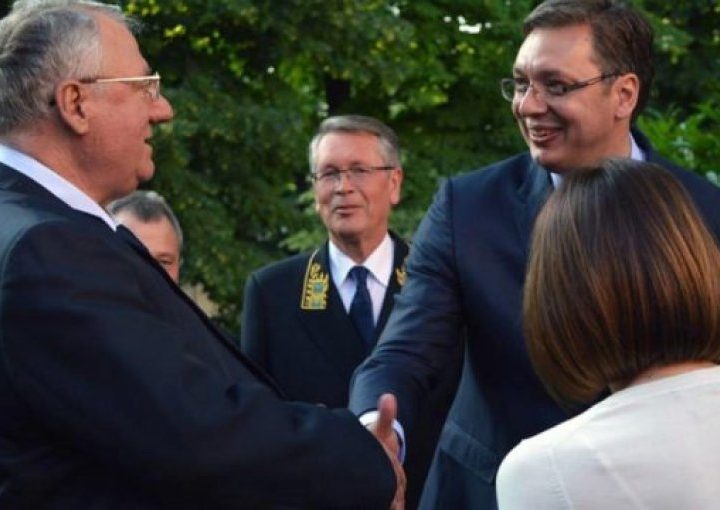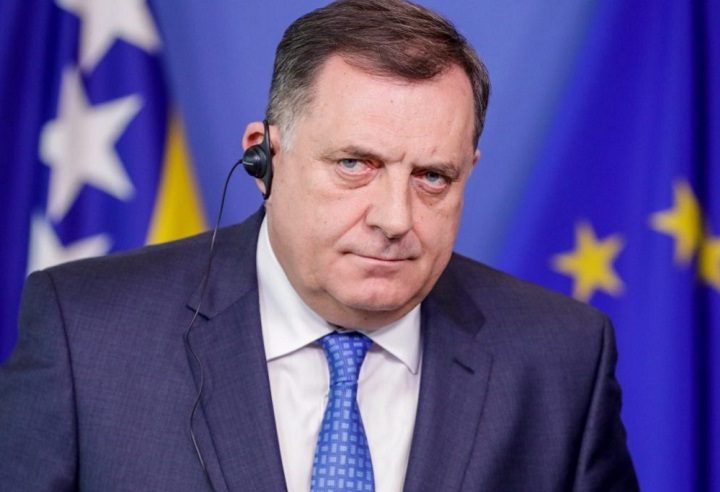
In the age of digitalisation, disinformation spreads rapidly, causes great damage and undermines trust in institutions with potentially serious consequences.
It is a serious problem that journalists face on a daily basis in their work. Social networks and a large number of portals (especially unregistered ones) are considered to be the biggest generators of false, inaccurate information and news.
Manipulation, propaganda, false information, distorted news and disinformation are different terms for threats aimed at manipulating the public.
These words are often used when talking about something that is intended to manipulate the public. There are many different interpretations of disinformation, just as there are different interpretations of who is responsible for spreading it.
The Institute for Communication Studies (ICS) in its analysis “The Role of Institutional Transparency in Addressing Disinformation and Speculation in North Macedonia” states that media literacy is a key tool in the fight against disinformation.
Citizens who are media literate are more aware of the existence of disinformation, can actively participate in the news monitoring process and are better able to identify and deal with disinformation, the document states.
The analysis carried out in the country showed that there are no respondents who could identify all the signs of fake news in one or most online news stories. The survey also found that vulnerable groups are defined as young people aged 18-28, adults over 60 and people in a socially deprived category (receiving some form of social assistance).
The survey also found that more than 85% of students and pensioners follow online news, indicating that news monitoring and the potential for exposure to misinformation through digital media is high among both age groups. In military doctrine, the term “hybrid threats” refers to a wide range of actions, tools and techniques, including disinformation, cyber-attacks, manipulation of international law, espionage, sabotage, political subversion, economic pressures.
Hybrid attacks use manipulation to exert a certain influence. The aim of hybrid attacks is to influence the public or processes that are important for key decision-making. In this direction, the main focus of hybrid attacks may be leaders, public figures, media, religious groups or civil organisations. Hybrid attackers seek to influence the credibility and integrity of individuals or groups that are important decision-makers.
The term “hybrid threats” or “hybrid operations” in modern systems includes terrorism, corruption, organised crime, migration and cybercrime. According to security experts, the countries of the Western Balkans are located in an area where the interests of different forces overlap, and which may be opposed or parallel to our interests. Therefore, countries should maintain their information, digital and financial sovereignty to prevent the spread of disinformation abroad and at home.
The most frequent attacks are through information systems, which security experts have shown to be potentially particularly vulnerable. The term “hybrid threats” or “hybrid operations” in modern systems includes terrorism, corruption, organised crime, migration and cybercrime.
According to security experts, the countries of the Western Balkans are located in an area where the interests of different forces overlap, and which may be opposed or parallel to our interests. Therefore, countries should maintain their information, digital and financial sovereignty to prevent the spread of disinformation abroad and at home. The most frequent attacks are through information systems, which security experts have shown to be potentially particularly vulnerable.
Professor Michal Witt explains to “Sloboden pečat” that everyone knows that Macedonia has long been a breeding ground for the hybrid activities of those who do not mean well for the country. He explains that research by a number of institutions, similar to the current one, has shown that disinformation is only a small part of the palette used by hackers in their operations and that hacking attacks are part of a hybrid war involving critical infrastructure and databases.
They are used as part of an ongoing strategy of special warfare to spread disinformation aimed at destabilising the security society. This is why we in Macedonia should not underestimate the hybrid threats of which disinformation is an integral part – he says.
What is the link between hybrid threats and disinformation?
In one of his statements on the subject, NATO Secretary General Jens Stoltenberg tried to explain how difficult it is to fight hybrid threats – even though they have existed since the Trojan Horse: “They are a combination of military and non-military aggression, a mix of overt and covert operations.”
Whether it is propaganda or targeted disinformation carried out by uniformed soldiers or computer programmes.
According to Stoltenberg, the scale and speed of such attacks have changed in recent years. This is why this joint NATO-EU initiative is very important. The institution will continuously analyse all types of attacks of this kind taking place in Europe and the US and develop a strategy on how best to deal with them.
North Macedonia is at the bottom of the media literacy rankings
With 23 points (out of a possible 100), North Macedonia is ranked 40th to last in the new Media Literacy Index for 2022. The Open Society Institute – Sofia’s European Policy Initiative ranked 41 countries.
Georgia is in last place, 41st, ahead of North Macedonia in 39th place, Kosovo (but with the same score as RSM), Bosnia and Herzegovina (24 points) in 38th place, Albania (25th ) in 37th place, Montenegro (32 points) in 35th place and Serbia (35 points) in 32nd place. Among EU Member States, Bulgaria is the lowest-ranked country, in 33rd place, just behind Serbia./Danas/

 “Russia is trying to start a war in the Balkans”
“Russia is trying to start a war in the Balkans”  How did the Vučić-controlled media conceal the EC’s findings for Serbia?
How did the Vučić-controlled media conceal the EC’s findings for Serbia?  Sesel joins Vucic on elections, fear of isolation from the world and regression
Sesel joins Vucic on elections, fear of isolation from the world and regression  Vucic calls parliamentary elections for 17 December, right-wing parties are coming out in three columns
Vucic calls parliamentary elections for 17 December, right-wing parties are coming out in three columns  Why is Vucic waiting until the last days to call elections for 17 December?
Why is Vucic waiting until the last days to call elections for 17 December?  Dodik called for “Greater Serbia” in Russian Sputnik, Montenegro and Albania reacted strongly
Dodik called for “Greater Serbia” in Russian Sputnik, Montenegro and Albania reacted strongly